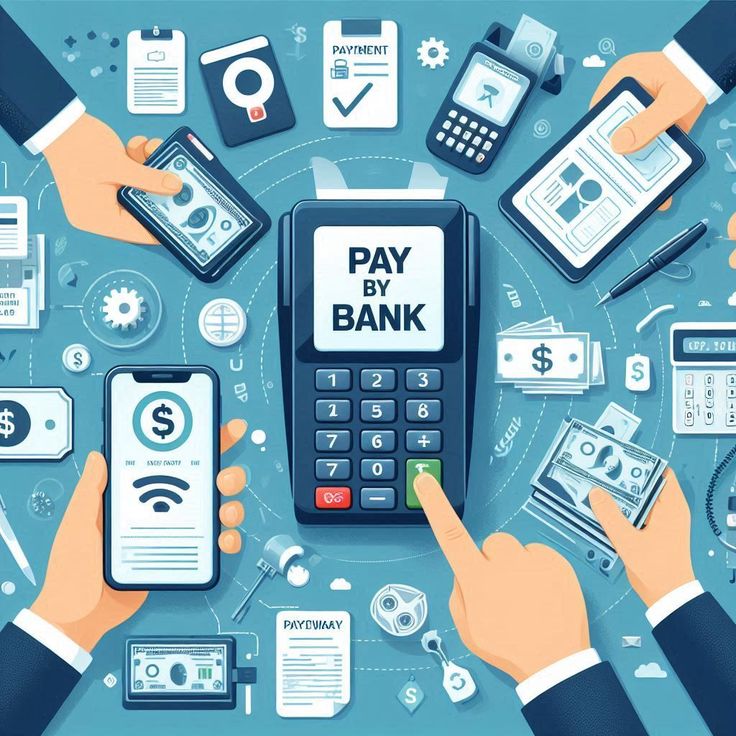💸 Financial Inclusion: The Dawn of a Revolution

💸 Financial Inclusion: The Dawn of a Revolution
Mobile fintech apps have revolutionized the global financial system by breaking down all barriers of traditional banking and making financial services accessible to every individual. This revolution has first and foremost transformed the lives of billions of people who were previously excluded from bank accounts. Now, with a simple smartphone, they can send and receive money worldwide, pay bills, and create new savings opportunities. The story of M-Pesa is the best example of this, having integrated individuals in Kenya into the financial system who were completely disconnected before. This change is not limited to transactions alone but has fundamentally altered people’s mindsets; they are now learning to manage their financial affairs through modern means. Apps like Paytm, PhonePe, and Alipay have given new meaning to financial inclusion by extending their services not only to urban areas but also to rural and underserved regions. These apps have bridged the gap between the rich and the poor, giving new momentum to economic development. This journey is still ongoing, and its deeper impacts will be witnessed in the coming years.
🏪 Transformation of Small Businesses
For small businesses, mobile fintech apps are nothing short of a blessing, having completely transformed their way of operating. Previously, a small shopkeeper would spend hours standing in line at the bank to manage their affairs; now, they can complete these tasks with a few clicks on their mobile phone. Mobile payment solutions like Square and PayPal Here have provided every small business with POS machine facilities, giving them the opportunity to compete on equal footing with large retailers. These apps have made it easier for small businesses to access working capital, allowing them to obtain loans without the complicated procedures of traditional banks. Apps like Kabbage and Fundbox have introduced systems for loan approval within minutes, which has proven to be a lifesaver for small businesses. Through these apps, small businesses can maintain better financial records, generate invoices, and manage tax matters with ease. All of this has been made possible at an extremely low cost, significantly enhancing the competitiveness of small businesses.
🌍 The New Era of Cross-Border Payments
In the traditional banking system, international payments were a complex, expensive, and time-consuming process, which mobile fintech apps have made extremely simple, cheap, and fast. Apps like TransferWise (now Wise) and Revolut have revolutionized the field of international payments, charging lower fees than traditional banks and offering real exchange rates. This change has benefited not only individual users but also small and medium-sized businesses that can now engage in international trade with ease. These apps have increased the participation of small businesses in the global economy, which previously could not access international markets due to the complexities of cross-border payments. Cryptocurrency-based solutions have added a new dimension to this field, enabling payments within minutes. Additionally, mobile wallets have made cross-border payments possible even in countries with weak banking infrastructure. Thus, mobile fintech apps have played a role in transforming the entire world into a global village.
📊 Data Analytics and Personalized Services
Mobile fintech apps have given financial services a new, personalized dimension through data, allowing them to adapt to each user’s individual needs. Using artificial intelligence and machine learning, these apps understand users’ spending patterns and help them make better financial decisions. Apps like Mint and YNAG have made budgeting and expense tracking extremely easy, enabling ordinary people to manage their financial affairs more effectively. With the data at their disposal, these apps can offer personalized financial products, such as insurance policies or investment opportunities tailored to users’ needs. Apps like Credit Karma have made credit building accessible to the average person by offering free credit monitoring. All of this is made possible through real-time data processing, providing users with instant insights. The power of data has not only empowered users but has also helped financial institutions make better decisions.
🔒 Advanced Security and Privacy Standards
Mobile fintech apps have set new standards in security, making them far safer than traditional banking systems. Biometric authentication, such as fingerprint scanning and facial recognition, has secured user accounts against unauthorized access. End-to-end encryption has ensured data protection, while tokenization has made it possible to process sensitive information securely. Two-factor authentication has now become a standard feature, providing an additional layer of security. The use of blockchain technology has taken transparency and security to new levels. Despite all these measures, fintech companies are continuously working on new security technologies to safeguard users’ financial transactions from all types of threats. In light of privacy concerns, these apps have given users complete control over their data, allowing them to decide what data to share and what not to share. This high level of security has gained users’ trust, which is a key reason for the rapid spread of these apps.
📈 New Doors to Investment
Mobile fintech apps have opened doors to investment for the average person that were previously limited to the wealthy and institutional investors. Apps like Robinhood, Acorns, and Stash have made investing in the stock market extremely easy and affordable, allowing users to trade without commission fees. The concept of fractional shares has made investing possible even for those with limited capital. Cryptocurrency exchanges like Coinbase have democratized access to digital currencies, while micro-investment platforms have shown a way to convert small daily savings into investments. These apps have promoted financial literacy, where users can learn about investments and acquire knowledge. Automated investment advisors like Betterment and Wealthfront have brought professional portfolio management within everyone’s reach. Thus, mobile fintech apps have not only created investment opportunities but have also introduced a new generation to financial literacy.
🚀 Revolutionizing Transaction Speed
Mobile fintech apps have dramatically increased the speed of financial transactions, completing tasks almost instantly. Real-time payments have fundamentally changed the concept of payments, enabling money transfers within seconds. UPI (Unified Payments Interface) has sparked such a revolution in India that any transaction, no matter how large, is completed within seconds. This speed has not only made users’ lives easier but has also improved the cash flow of businesses. Instant loan approvals and quick insurance claim processing have completely transformed the experience of financial services. Despite this speed, transaction costs have significantly decreased, making even small payments economically viable. This change is enhancing the efficiency of the entire economic system, allowing for better use of time and resources.
🌱 Environmental Sustainability and the Digital Economy
Mobile fintech apps have not only promoted financial inclusion but have also played a significant role in environmental sustainability. Paperless transactions have significantly reduced paper usage, positively impacting the environment. Digital receipts have replaced old paper receipts, not only increasing user convenience but also benefiting the environment. Reduced use of physical bank branches has decreased carbon emissions from transportation. Green financing platforms have opened new avenues for funding environmentally friendly projects. Carbon credit trading platforms have created opportunities for businesses and individuals to reduce their carbon footprint. Thus, mobile fintech apps have established a strong link between the digital economy and environmental sustainability.
⚖️ Regulatory Challenges and Opportunities
The rapid spread of mobile fintech apps has created both challenges and opportunities for regulatory bodies. On one hand, regulators can achieve financial inclusion goals through these apps, while on the other hand, they must focus on consumer protection and managing systemic risks. Different regulatory approaches in different countries have made it challenging for fintech companies to operate globally. However, the concept of regulatory sandboxes has played a key role in promoting fintech innovation. Open banking regulations like PSD2 have opened new pathways for fintech apps. In the coming years, collaboration between regulators and fintech companies will be crucial for the growth of this industry.
🔮 Future Possibilities
The future of mobile fintech apps looks extremely bright and full of possibilities. The advent of central bank digital currencies (CBDCs) will open new dimensions for fintech apps. The use of artificial intelligence and machine learning will make these apps even smarter. Integration with decentralized finance (DeFi) has paved the way for the complete decentralization of financial services. The advent of quantum computing will bring extraordinary improvements in security and processing speed. Integration with IoT devices has created the potential to transform every device into a financial tool. Thus, mobile fintech apps will become even more integral to our lives in the coming years.


